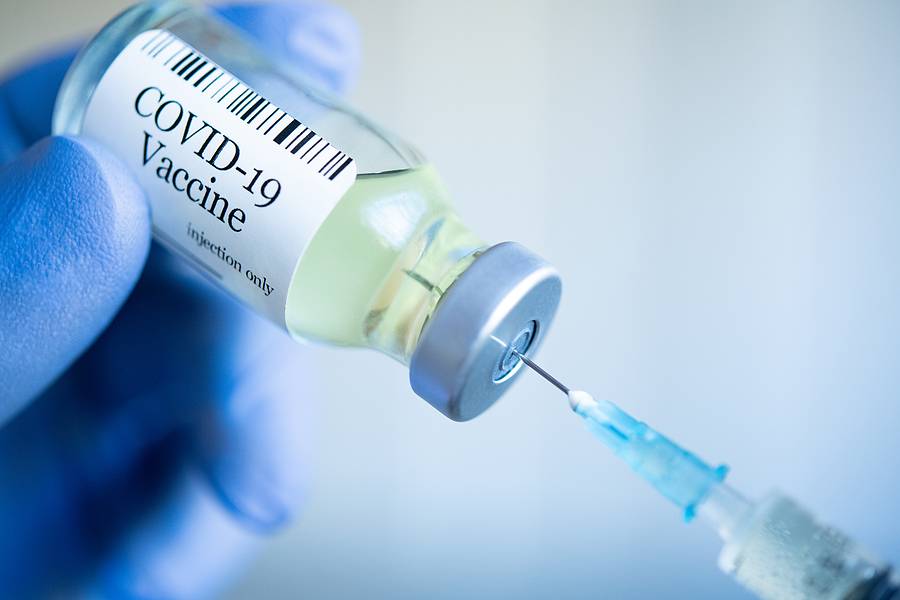Should my company mandate vaccinations? Like everything Covid related, the answer is complicated. According to employment law attorney Rich Landau of Jackson Lewis, their tentative position is that requiring employees to be vaccinated for COVID 19 is very difficult to mandate. This is primarily due to EAU (Emergency Use Status) of the vaccine, legal risks including discrimination, and employee relations challenges as you try and navigate this HR terrain.
For those clients less risk-averse we have a sample draft policy courtesy of Jackson Lewis. For Metropolitan Risk clients you can obtain the sample Covid vaccine policy by contacting your Account Executive. They are instructed to give you our draft sample. If you are not a Metropolitan Risk client, feel free to reach out to one of our Risk Advisors for a brief discussion.
According to our THINK HR partner and our partners at Jackson Lewis, there is an expectation that the EEOC ( Equal Employment Opportunity Commission ) will issue additional guidance with respect to ADA & Title VII issues with respect to employers mandating whether employees MUST be vaccinated.
Our partners in our discussions point to the influenza policies for guidance on how to proceed with the Covid vaccinations. Most employers ENCOURAGE rather than mandate which can be a safe haven should legal challenges arise. According to Rich Landau of Jackson Lewis, “even if the EEOC allows employers to mandate COVID vaccinations this will not elevate the risk of other non-discrimination, state laws, or workers compensation claims if employees suffer a serious reaction while the vaccine is in EAU status.”
There are numerous complications and challenges that may arise if you mandate the vaccine.
Potential Employer-Related Challenges With Requiring/Encouraging The Covid-19 Vaccine
- Is getting the vaccine Mandated or voluntary – – who is mandated?
-
- The priority of recipients (Which staff members or clients should be vaccinated first?)
- Incentives to receive it- Does your current organization offer incentives for the Flu shot?
- Covid-19 vaccine only or influenza as well
- Who pays for the actual vaccine, the time needed to get the vaccine
- Process for inoculation
- Tracking status
- Handling poor reactions – – paid time off
- How are you managing employees or clients that have adverse reactions to the vaccine?
- Ensuring confidentiality
- What if you run out of the vaccine
- Covid-19 protocols while in midst of process/after the process is completed
- What protocols will stay and what protocols will change? How will you as the employer manage these new expectations?
- Addressing exceptions – – medical, religious, generalized fear
- Handling non-compliance – – remote work, leaves of absence, discipline
The last point to consider beyond your Employee stakeholders maybe your customer base. As an example for those companies providing services to senior care organizations, like Home Health Care Agencies, Nursing Homes, and Assisted Living Facilities it may be suggested that you disclose to your customer base that your organization suggests, not mandates vaccinations. This disclosure should be made at either point of sale /contract, or communication piece sent out to your customer base. This may protect your organization from liability should your customer base look for damages at some future point. This can be a very sensitive topic as each business needs to arrive at its own business decisions with respect to disclosures. There is no silver bullet here, your goal as with all risk-related decisions is to manage the exposures relative to potential downside losses in BOTH columns of the decision tree.
As you can see invoking a set vaccine policy to benefit all stakeholders is vexing, to say the least.
We will continue to provide updates to this new landscape as we receive them. We encourage you to speak with a Risk Advisors for further guidance on the matter BEFORE invoking a set policy. Please mindful that this is a very dynamic and fluid landscape, changing almost weekly. Contact a Risk Advisor at 914-357-8444. Thank you
